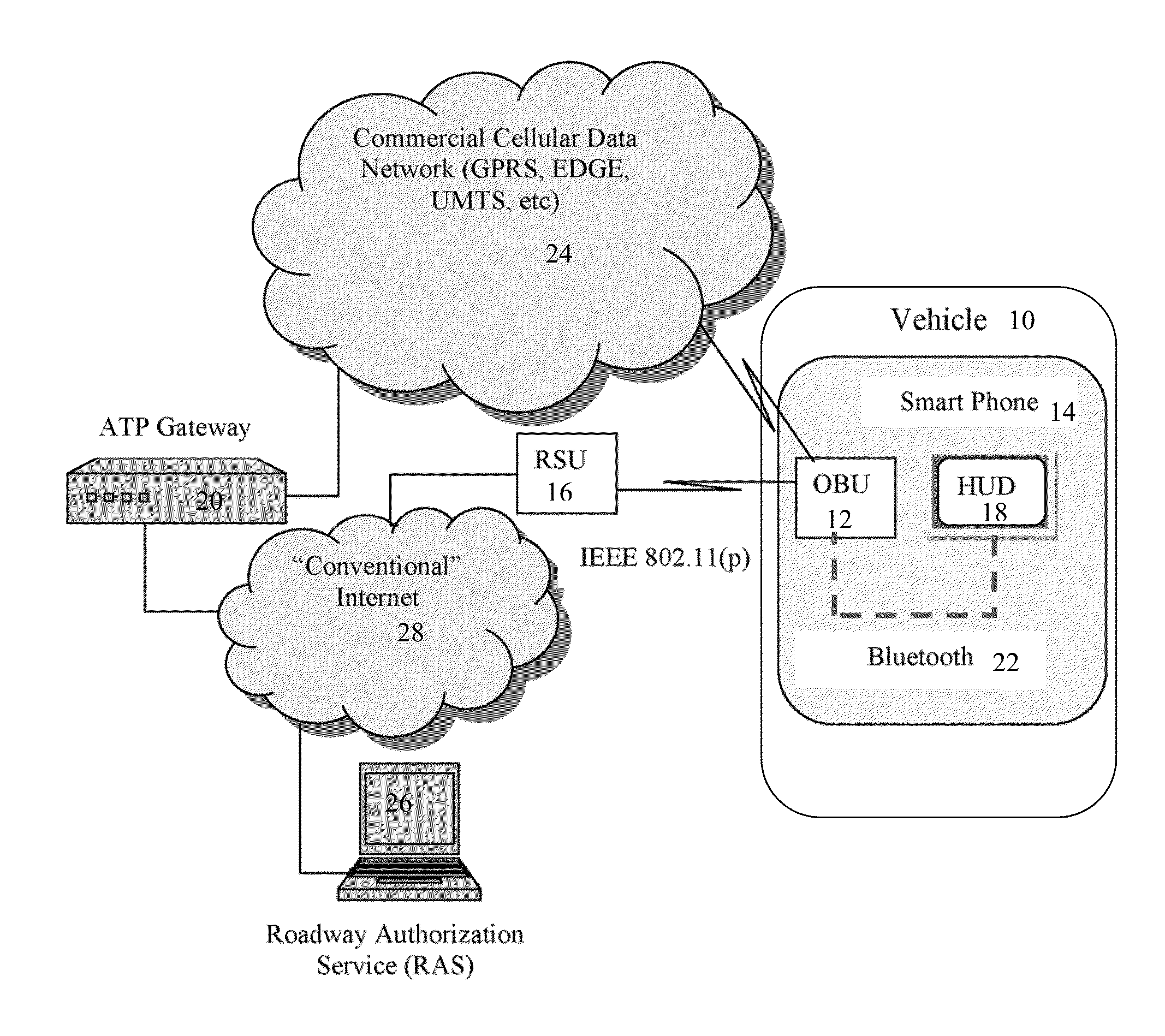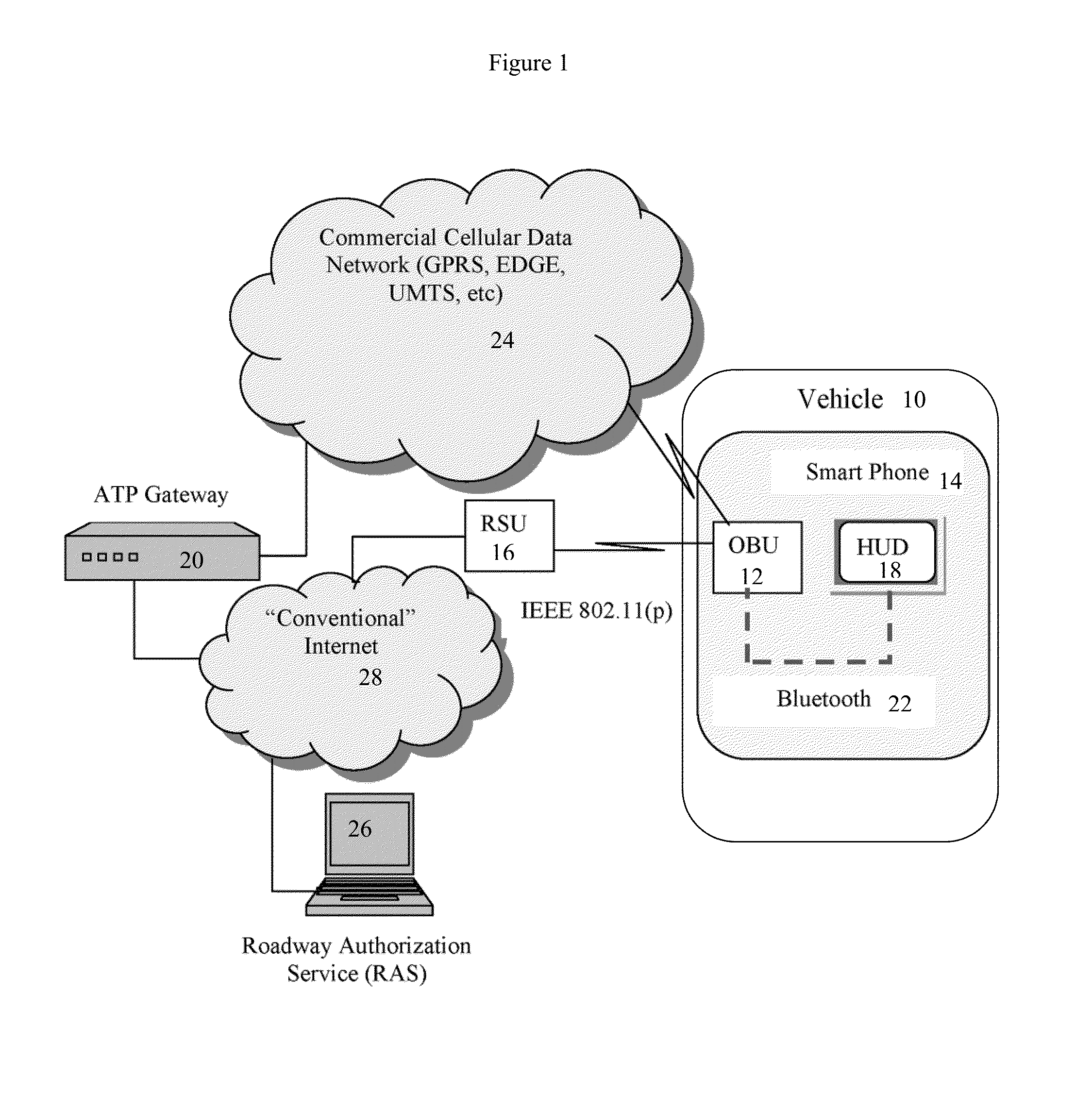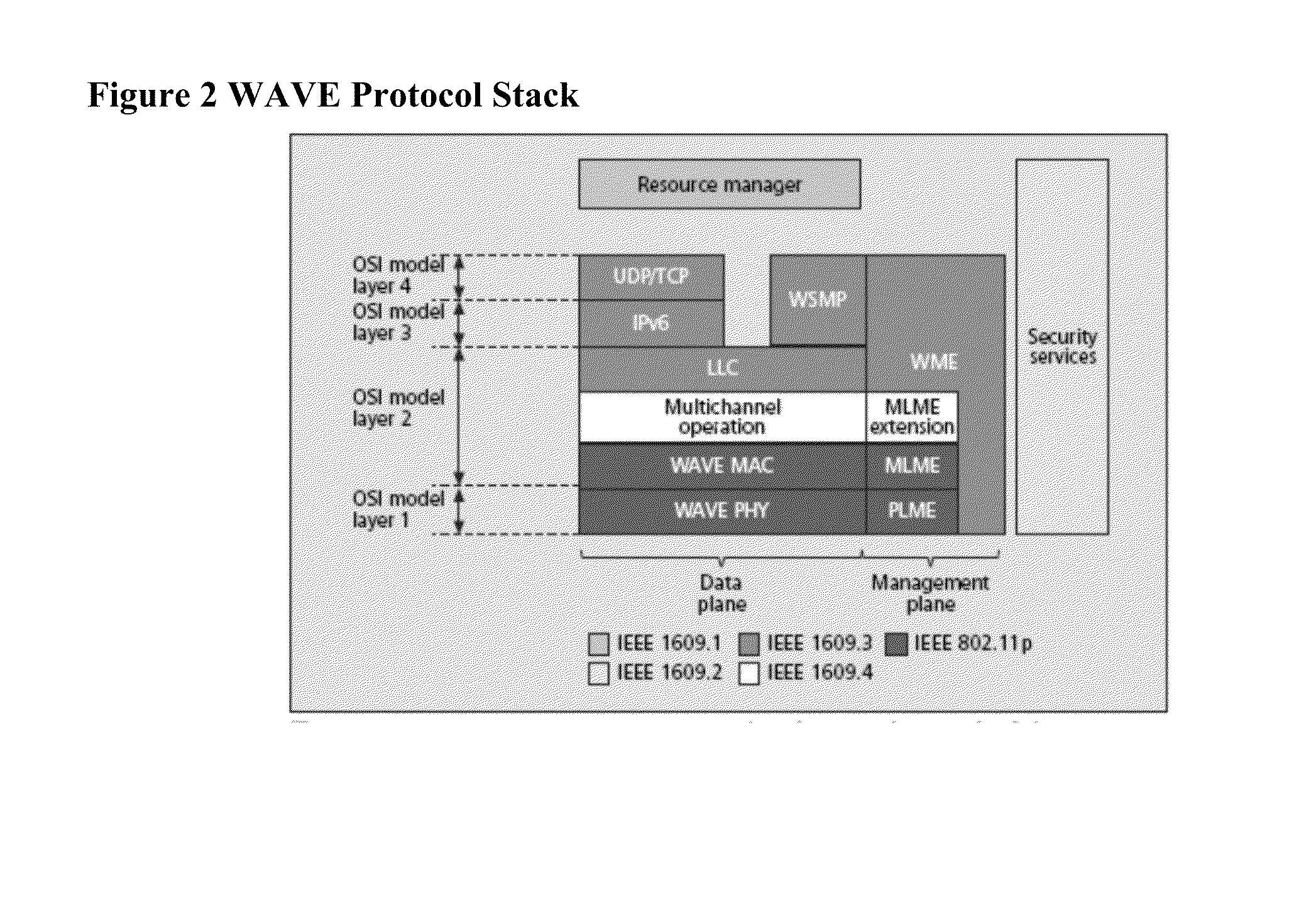Vehicle communications via wireless access vehicular environment
a vehicular environment and wireless access technology, applied in the field of vehicular environment wireless access vehicular environment, to achieve the effect of enhancing road safety and little or no hardware cos
- Summary
- Abstract
- Description
- Claims
- Application Information
AI Technical Summary
Benefits of technology
Problems solved by technology
Method used
Image
Examples
Embodiment Construction
[0061]FIG. 1 provides an overview of the concepts described in the present invention, in terms of the system components and their relationships to one another. On-board the vehicle 10 is an OBU 12, which may be integrated in a new vehicle or retrofitted as an aftermarket device or app, such as in a smart phone (SP) 14, a PDA, a tablet, a dash-mounted unit, a GPS receiver, etc. The OBU includes known circuitry such as one or more processors, ROM, RAM, interfaces, transmitter, receiver, antenna(s), together with computer program code useful in carrying out functions to be described below. The OBU 12 interacts with an RSU 16 according to the specifications for the complete WAVE protocol stack via, for example, transmitters and receivers in each of the OBU and the RSU. The RSU also includes known circuitry such as one or more processors, ROM, RAM, interfaces, transmitter, receiver, antenna(s), together with computer program code useful in carrying out functions tom be described below. T...
PUM
 Login to View More
Login to View More Abstract
Description
Claims
Application Information
 Login to View More
Login to View More - R&D
- Intellectual Property
- Life Sciences
- Materials
- Tech Scout
- Unparalleled Data Quality
- Higher Quality Content
- 60% Fewer Hallucinations
Browse by: Latest US Patents, China's latest patents, Technical Efficacy Thesaurus, Application Domain, Technology Topic, Popular Technical Reports.
© 2025 PatSnap. All rights reserved.Legal|Privacy policy|Modern Slavery Act Transparency Statement|Sitemap|About US| Contact US: help@patsnap.com



